Posted on 8/31/2023
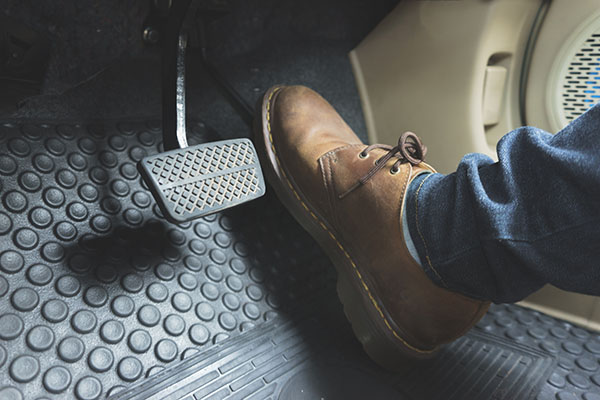
The reassuring firmness of your brake pedal is a sensation that instills confidence and safety as you navigate the roads. However, what do you do when that confidence is compromised by a sudden change in how your brake pedal feels? If you've noticed your brake pedal feels unusually soft or mushy, it's not a sensation to be ignored. After all, who want's to drive without brakes? Understanding the Brake System Before we explore the causes of a soft brake pedal, it's essential to grasp the basics of your vehicle's braking system. When you press the brake pedal, you're initiating a hydraulic system that transmits your force to the brake calipers or drums, ultimately slowing down or stopping your vehicle. The sensation of a firm brake pedal comes from the efficient transfer of this force. However, when that firmness is compromised, it's a sign that something might be amiss. Air in the Brake Lines One of the most prevalent cau ... read more
Posted on 7/31/2023
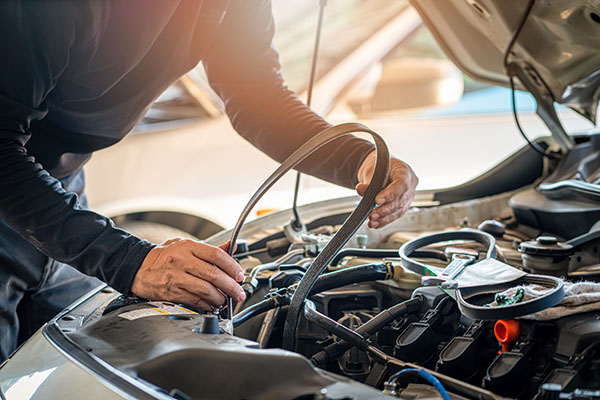
To make sure you're cruising worry-free, regular inspections and checks are a must. Not only do they help catch potential issues early, but they also maintain roadworthiness and keep your vehicle's life revved up! In this blog, we've got the lowdown on the recommended frequency for inspections and checks, so you can stay on top of maintenance and enjoy the road ahead with a big smile! Routine Maintenance Checks Routine maintenance checks are the foundation of keeping your car in good condition. These checks should be performed at specific intervals or based on the mileage driven. The most critical routine maintenance checks include: Engine Oil: Oil, oil, oil! Engine oil lubricates and protects vital engine components which makes it a vital part of your vehicle's "ecosystem". Regular oil changes (typically every 3,000 to 5,000 miles or as recommended by your vehicle's manufacturer) ensure smooth engine operation and prev ... read more
Posted on 6/30/2023
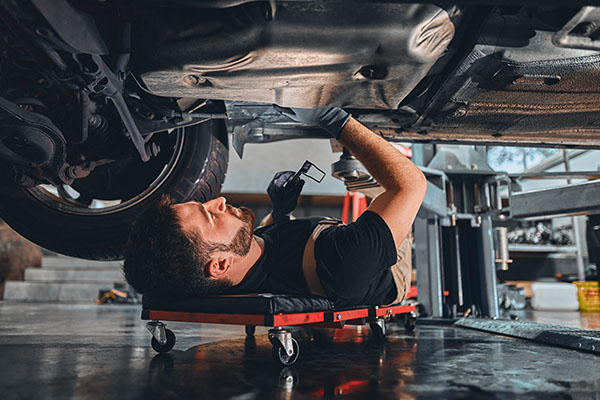
When you visit a repair shop for maintenance or repairs, it's an excellent opportunity to go beyond addressing immediate concerns and ensure the overall health and reliability of your vehicle. In this blog, you will find important checks and inspections you should consider during your visit to the repair shop. By taking a proactive approach, you can catch potential issues early, maintain optimal performance, and enhance your driving experience. #1 Fluid Levels and Quality Fluids play a vital role in the proper functioning of your vehicle, as you might know. Ensure that the repair shop checks and tops up essential fluids, such as engine oil, transmission fluid, coolant, brake fluid, and power steering fluid. Additionally, ask them to inspect the quality and condition of these fluids, as degraded or contaminated fluids can lead to performance issues or damage to critical components. #2 Battery Health A weak or malfunctioning batte ... read more
Posted on 5/31/2023

Headlights are essential for driving safely at night and in low-visibility conditions. They illuminate the road ahead and make your vehicle visible to other drivers and pedestrians. However, over time, headlights can become dirty, foggy, yellowed, or cracked due to exposure to dirt, dust, moisture, UV rays, and road debris. This can reduce their brightness and clarity, making them less effective and potentially dangerous. That's why, we will share some easy ways to maintain your car’s headlights and keep them in good condition. How to Clean Your Headlights The simplest way of cleaning your headlights is with a cleaning product (window cleaner works great) and a soft brush. This will remove any dirt and grime that may have accumulated on the surface of the headlights and restore their shine. You can also use a glass cleaner or a specialized headlight cleaner spray for this purpose. Wash your car with a cleaning product and rinse it with water. Spray some c ... read more
Posted on 4/29/2023
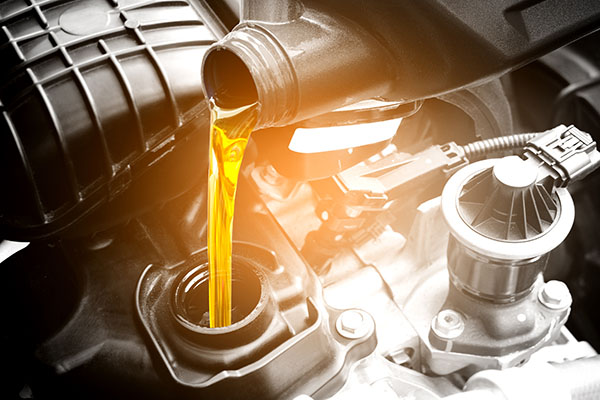
The oil keeps all of the parts in your engine lubricated and working smoothly. While its main job is to provide lubrication, as mentioned above, it also helps with the cooling of the engine components. The engine block is full of crevasses and holes, so the oil can flow freely everywhere. But when it can't do that, problems start to arise. Things like overheating or friction welding occur when the engine has either bad or no oil. That's why we will let you know a couple of ways to spot when your engine oil needs to be changed. Keep in mind that despite our recommendations, the manufacturer's intervals should not be ignored - they can be found in the owner's manual. Is Your Check Engine Light On? If your check engine light is on, one of the many reasons for that can be bad engine oil. When it ages and gets used, it starts to break down, causing it to perform worse. Some newer cars have a warning message that pops up when you're due f ... read more
Posted on 3/28/2023
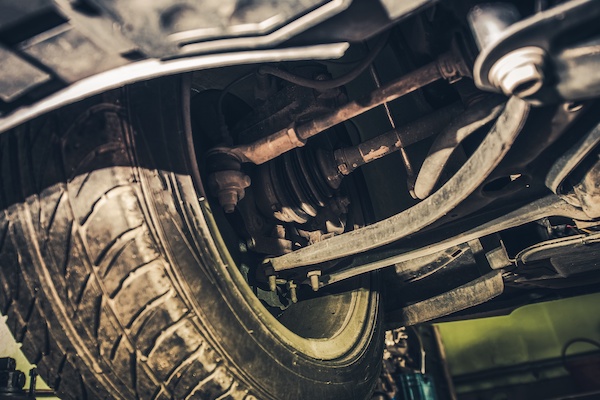
When it comes to the suspension system of a vehicle, two components often come up in conversation: shocks and struts. Although they both serve similar purposes, they have different designs and functions. They shouldn't be used interchangeably, so let's dive deeper into the differences between shocks and struts. Shocks and struts are both responsible for providing a smooth and stable ride by controlling the movement of the springs in the suspension system. However, shocks and struts are different. Shocks Shocks are hydraulic devices that dampen the springs' movement in the suspension system. They consist of a cylinder filled with oil and a piston that moves up and down inside the cylinder. When the wheel hits a bump or dips in the road, the shock compresses and releases the oil, slowing down the spring's movement. Struts Struts, on the other hand, are a structural part of the suspension system that combines the shock absorber and other components. They are a more c ... read more
Posted on 2/27/2023
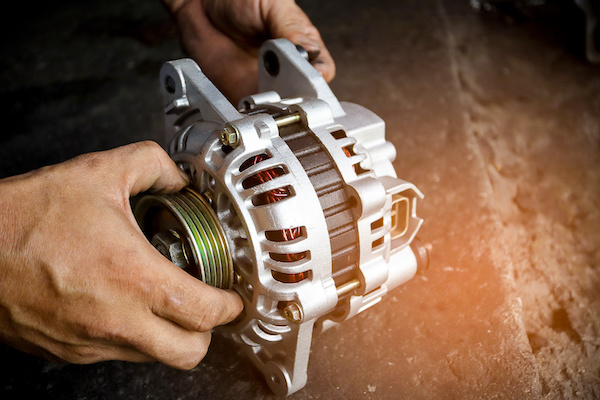
Usually, when someone experiences car starting problems, they immediately assume that it is due to a dead battery. While your battery may be weak, there may be more to the story. Your alternator could be the culprit. An alternator is a charger for your battery, and it provides the necessary electricity to all your electronic accessories in your car. Over time, parts of the alternator weaken and stop working altogether. Its brushes, rotors, and other internal components may need replacing. If your car shows any of the following signs, it could mean that your alternator has gone bad: 1) Dead Battery One of the most common signs of a weak alternator is a dead battery, which is why it is hard to distinguish a problem between the two. When an alternator is problematic, the battery must use a significant amount of energy until it depletes. 2) Engine Stalls If your engine stops working at any point during your drive, you may want to check to see if you have an al ... read more
Posted on 1/29/2023
.jpeg)
Batteries can die or drain for a number of reasons. And they are absolutely necessary to start our engines to run our cars. There’s nothing worse than returning to your car to find that you can’t start it because of a battery problem. Read on to learn more about why your battery may be putting out enough voltage or any voltage at all. Why Is My Car Battery Not Working? Below are some of the most common reasons why your car battery is causing your starting problems: The car battery is old (3-5+ years) and can no longer hold a proper charge. The car battery is completely drained. It can be due to an accident such as leaving too many electronics plugged in your car or forgetting to shut a door or turning the headlights off. In other cases, it can be drained due to a faulty alternator. If you’ve only used your vehicle for short runs, your battery has not had enough time to charge. How to Prevent the Issues Mentioned Above Avoid too short of car rides Drive a ... read more
Posted on 12/30/2022
.jpeg)
Have you been wondering what an Oil pan gasket is? You've been meaning to get it but have no idea what is. This is article is just what you've been looking for to educate you fully on what you need to know. What is an Oil Pan Gasket? An oil pan gasket is an item that clamps and secures your oil pan. It collaborates with your oil pan to guarantee that the majority of motor oil is contained in your engine, keeping each part oiled and operating flawlessly. Oil Pan Gasket Leak Symptoms Watch out for these signs so as to easily detect a leaking oil pan gasket; Smoking Vehicle One of the most apparent indications that may crop up whenever the oil pan gasket is eroded away is smoke from the engine. The smoke normally occurs when oil drips onto the exhaust pipes or manifold. Failure to pay enough attention to this issue may result in other difficulties, such as damage to your gas sensor and other automobile components as a result of being drenched in oil for an extended pe ... read more
Posted on 11/29/2022
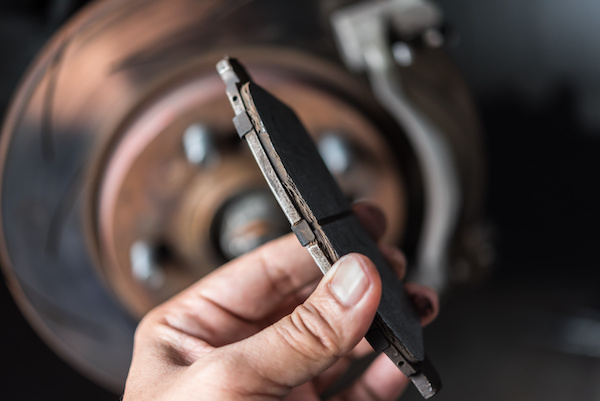
When it comes to brake problems, they are easier to spot than some other vehicle parts. Between various sounds and sensations, you can spot worn brake pads early enough to avoid a dangerous situation. We recommend staying alert and being on the lookout for the following signs of bad brake pads: Screeching or grinding: Brake pads and many other brake parts are made of metal. They wear thin over time, and they have wear indicators that create an ear-piercing sound to warn you to have your brakes serviced. Don’t wait too long after these cues because it can damage other brake components and lead to more expensive repairs. Shaky Steering Wheel and/or Brake Pedal: As just mentioned, worn brake pads can spread damage. More often, thin brake pads can rub against the brake rotor and send a series of vibrations to the pedal and steering wheel. It is pretty discomforting to sit through, so please pay attention to your brakes when they need you! Brake Warning Light Comes On: Most ... read more